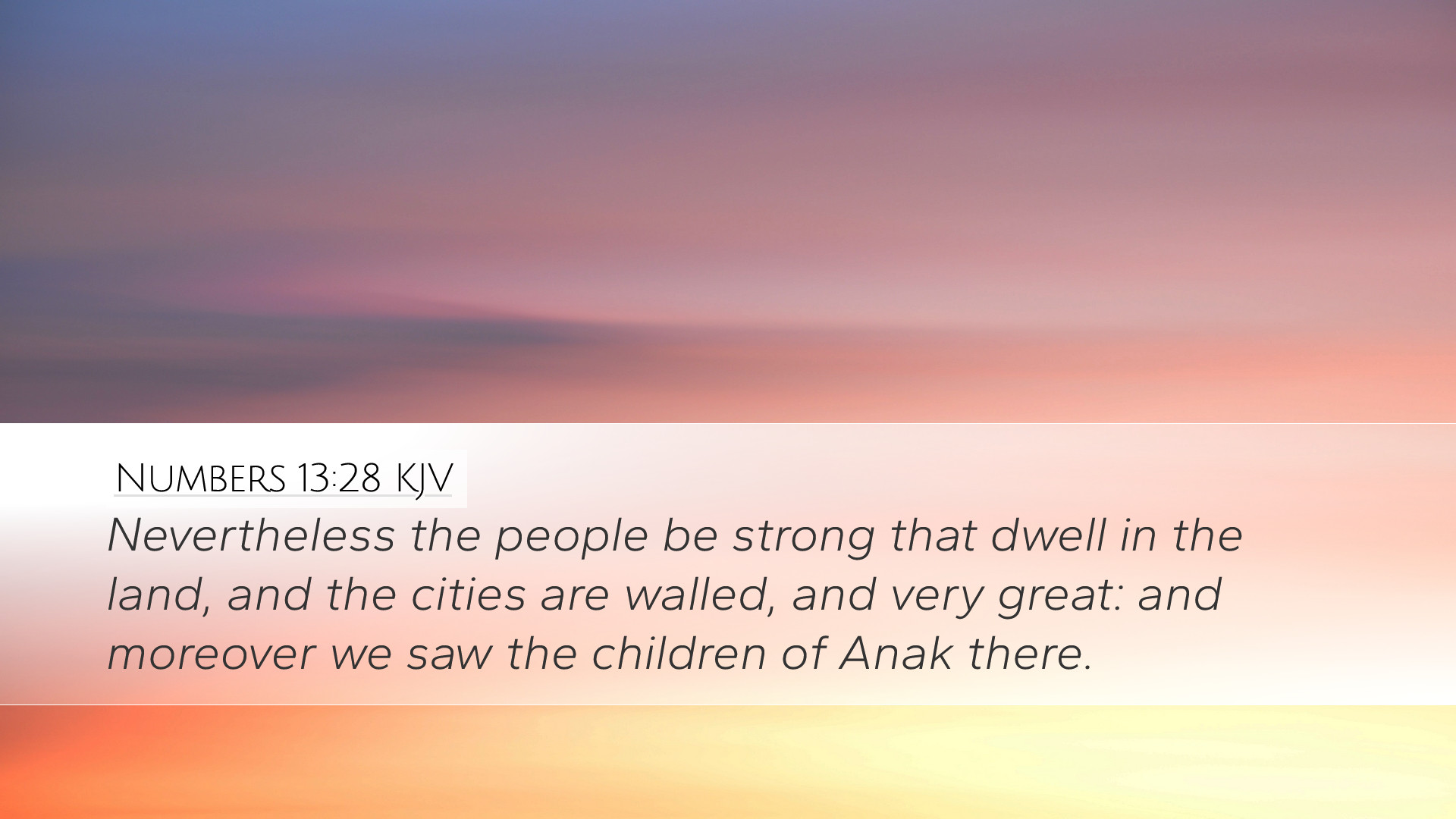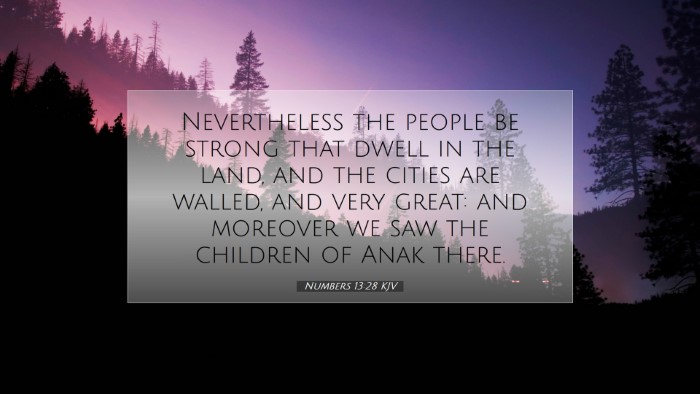Commentary on Numbers 13:28
Verse Reference: Numbers 13:28 - "Nevertheless the people be strong that dwell in the land, and the cities are walled, and very great: and moreover we saw the children of Anak there."
Contextual Overview
This verse is a part of the narrative that describes the Israelite spies sent to scout the land of Canaan. This moment is crucial as it captures the tension between faith in God’s promises and fear of present circumstances. The spies’ report represents a pivotal moment in Israel’s history, highlighting the struggle between trust and fear. According to Matthew Henry, the report illustrates two significant sides: the potential of the land and the challenges posed by its current inhabitants.
Analysis of the Verse
1. Recognition of Strength:
- The phrase "the people be strong" signifies the undeniable reality of the Canaanite inhabitants. This acknowledgment points to the physical strength and fortifications of those residing in the land.
- According to Albert Barnes, this recognition serves as a call for humility, reminding God’s people that they must not underestimate their challenges.
2. Cities and Walls:
- The mention of "walled cities" indicates a level of security and defense that could discourage an army of wanderers like the Israelites.
- Adam Clarke emphasizes that these walls symbolize the fortified nature of opposition, which appears daunting against the promise of God.
3. The Children of Anak:
- Referring to the giants among them—the Anakim—this highlights a profound fear that gripped the hearts of the spies. These giants served as an embodiment of the fears and obstacles that God’s people face.
- Henry notes that while the mention of giants may evoke fear, it should also underscore the power of God, who has promised victory.
Theological Implications
This verse speaks not only to a historical moment but also to broader theological truths about faith, fear, and God’s promises. The duality of strength and fear embodies the struggle faced by believers throughout generations.
1. Faith versus Fear: The spies’ acknowledgment of the strong people indirectly highlights the crisis of faith that the Israelites grappled with. The faith required to enter that promised land was challenged by visible, tangible fears.
2. God’s Sovereignty: Even in the presence of formidable opponents, faith rests in the sovereignty of God. As indicated by Clarke, true belief recognizes God’s ability to overcome all barriers, regardless of size and strength.
Application for Today's Believers
Pastors, students, theologians, and scholars can draw many lessons from this account:
- Resilience in Faith: Just as Israel was called to resist fear, believers today are urged to place their trust in what God has promised rather than on visible circumstances.
- Community Dynamics: The report of the spies reflects the influence of words within a community. Harnessing faith-filled language can shape the spiritual atmosphere within congregations.
- Legacy of Conquerors: With a history rich with divine intervention and victory, believers are reminded that they are part of a legacy that encourages courage and faith in the face of overwhelming odds.
Conclusion
Numbers 13:28 captures a moment of profound significance, depicting the tension between the promise of God and the reality of obstacles. As noted in the commentaries of Henry, Barnes, and Clarke, this narrative serves as a timeless reminder for God’s people to face fears with faith. The strengthening of one’s faith against visible challenges is a hallmark of spiritual maturity. The content of this verse provides a roadmap for navigating doubt and uncertainty by holding fast to God’s assurances.


